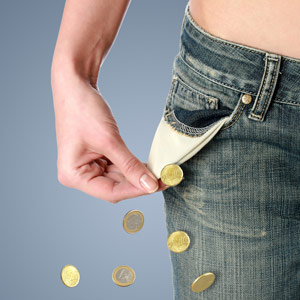
It's time for drastic measures to cleanse the system, but it's hard working up the self-discipline to get excited about no caffeine, extra roughage and twenty glasses of water daily amid all the other start-of-the-year pressures. Without intervention, though, things may get much worse.
Same goes for your money. For many of us, years of bad habits and overindulgence have left our finances similarly bloated and ailing.
There isn't a quick, sexy way to detox your finances. It will mean less nice things, and more restraint.
There are a couple of areas to focus on to get your finances in the pink.
Debt:
Too much debt in your system is extremely poisonous. You won't achieve your goals if big chunks of your income are spent on interest payments and instalments each month.
The good news is that the cost of your debt will come down this year. Economists expect interest rate cuts of three percentage points this year. However, this will still leave rates two percentage points higher than before the "tightening" cycle started. Also, it could take a full year for all the expected cuts to come through.
You can't rid yourself of debt without understanding exactly how much debt you have and having a clear budget that makes provision for settling the debts for once and all. (There are handy budget tools online, like Absa's budget calculator.)
Make a list of your debts (excluding your house and car). Start tackling the debt with the highest interest rate first. Cut out luxury items (fast food, daily cappuccinos) and use the money to pay more than the minimum instalment on that debt. As soon as it's settled, use the full monthly amount you paid for the first debt towards paying off the debt with the next highest rate.
When you have paid off all your debts, use the amount towards extra repayments on your house or car – in a couple of years time, you might be living mortgage-free.
If you can't even afford to pay the minimum payments on your debt, consider selling some of your assets or getting debt counselling.
Crucially, once you've settled your debts, make sure you can't fall into that trap again by cutting up your credit and store cards, and paying cash as far as possible.
Spending:
Bad spending habits are usually at the root of over indebtedness.
Stick to your budget and spending limits. Take a closer look at unneccessary expenditure – money going to club memberships and subscriptions you never use. Shop around for better deals on banking costs and medical schemes. Also compare short term insurance; find out if you can’t save money by switching.
Stop "stupid" spending too, like using debt to pay for non-assets (like clothes, holidays and food). Blowing money on a new car – which traditionally loses more than a fifth of its value as soon as it's driven off the lot – is also a bad idea.
Saving:
At least 15% of your income (before tax and deductions) should be invested for retirement. But experts warn that that may not be enough given the increasing cost of healthcare – a recent survey shows that retirees spend more than 40% of their savings on health bills – and longer life expentancies. Inflation will also wreaks havoc on your savings. At the current inflation rate, the R60 000 you have now will be worth R19 300 (in today’s values) in ten years' time.
Putting a quarter of your income away for long term goals seem prudent. But the big question, against the background of global market turmoil, remains: where?
As interest rates fall, squirreling it away in a savings or money market account may not look so attractive. But shares are shaky, with the JSE losing more than a quarter of its value last year. Experts are divided about what will happen this year. Some expect a recovery in the second half, others only see a meek upturn in 2010.
The closer you are to retirement, the more important it is to consult an independent financial advisor about your investment choices. If you have more than ten years to go, investing in shares should – traditionally – yield better results than other assets. To spread the risk, choose from unit trusts or investment products like Satrix.
Career:
It's time to break the poisonous addiction of constantly surfing or scouting for a better job. Just keeping your current job might turn out to be a huge achievement this year.
The global economic downturn is costing millions of jobs – economists expect that 25m will be out of a job by the end of the year. In the US, more than 690 000 workers are being shed a month, while some 74 000 South Africans lost their jobs in the third quarter of last year.
Consult a recruitment agency to find out what skills are in short supply in your field and consider investing in further education to increase your marketability.
Basic building blocks for healthier finances:
There are a number of must-haves to make sure you money situation is in good shape, which include:




 Publications
Publications
 Partners
Partners










